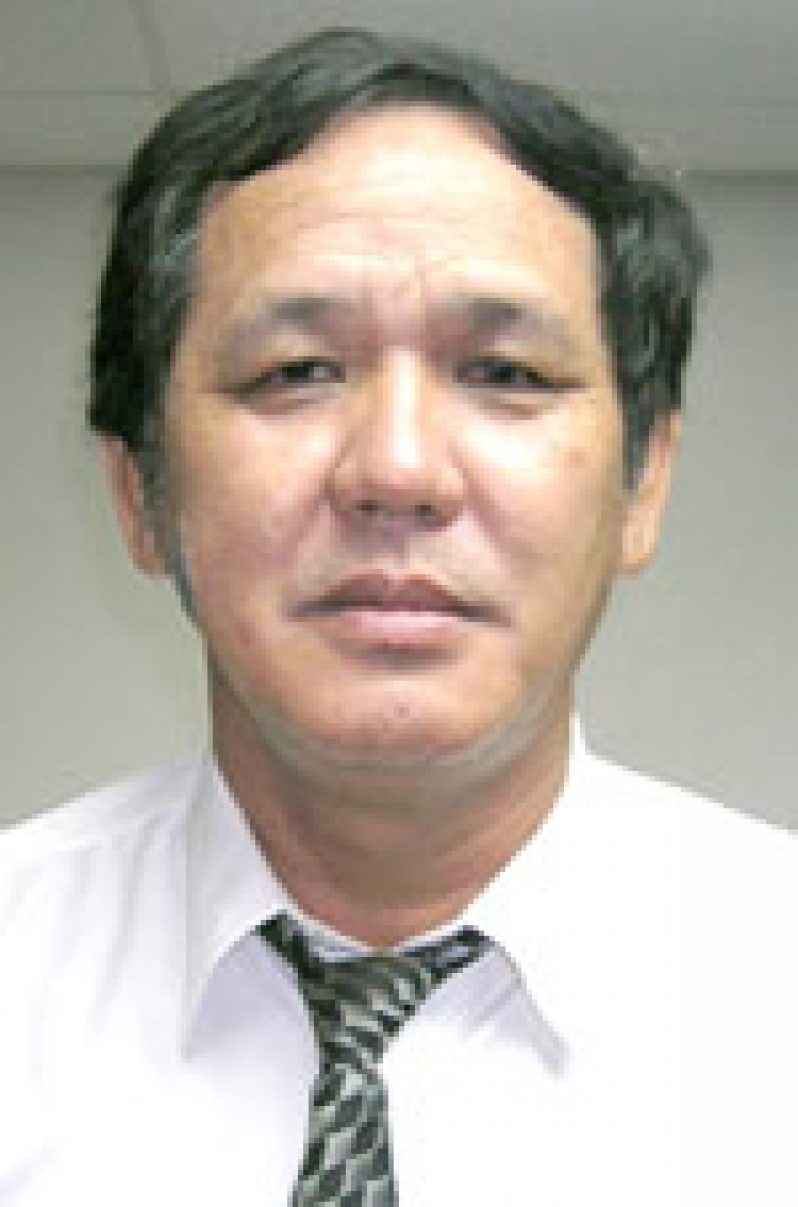CHIEF Justice (ag.) Ian Chang, at yesterday’s hearing of the Government of Guyana’s High Court challenge of the cutting of the 2012 National Budget ruled that since Members of Parliament have immunity and cannot be sued, Minister of Finance, Dr. Ashni Singh and Leader of the Opposition, David Granger are therefore excluded from being a part of the case. He mentioned in the ruling that they should not have been named in the case which comes up for hearing again on July 5.
 He further ruled that there is no need for evidence taken in the matter as the Attorney General (AG), Anil Nandlall and the Speaker’s lawyer, Khemraj Ramjattan have agreed to put forward an agreed Statement of Fact, and that the defendant David Granger’s lawyer can continue in the case ‘amicus curiae’ (friend of the court).
He further ruled that there is no need for evidence taken in the matter as the Attorney General (AG), Anil Nandlall and the Speaker’s lawyer, Khemraj Ramjattan have agreed to put forward an agreed Statement of Fact, and that the defendant David Granger’s lawyer can continue in the case ‘amicus curiae’ (friend of the court).
AG Nandlall who is representing the Government of Guyana stated that the ruling also indicated that according to the Constitution of Guyana, the Speaker of the National Assembly, Raphael Trotman falls into a different category and remains as the sole defendant in the case.
After the ruling, there was an agreement reached between the AG and Attorney Khemraj Ramjattan who represents the Speaker, “that there will be an agreed Statement of Facts…once agreed upon…which will form the facts of the matter,” the AG said.
He explained that in keeping with his previous arguments that cross- examination of witnesses in this matter was absolutely unnecessary, “this is a matter that involves pure questions of law. The facts which led to the cutting of the budget by the Opposition are not facts that are in dispute, they can easily be verified by production of the Hansard (Parliament records) and the facts as they unfolded in the National Assembly are matters of public notoriety and cannot be the subject of dispute,” the AG declared.
AG Nandlall further emphasised that those are the only facts relevant to the determination of the legal issue which is a simple one: “Does the Opposition has a power to reduce the National Estimates presented by the Finance Minister? That is the legal issue.”
He emphasised that a cross-examination of Head of the Presidential Secretariat, Dr. Roger Luncheon “is a complete waste of time. This is what the APNU lawyers want to do. They want to waste time to cross examine on matters that are absolutely irrelevant to the determination of the legal issue. So I welcome the ruling, and I am happy it will advance the case further so that we can bring this matter to an end,” the AG said.
“They have failed to advance any sensible legal argument as to why a cross-examination of Dr. Luncheon is necessary and relevant. It is all a ploy and a time-wasting game which they are playing that is precisely a strategy on many important matters in the parliament,” he stated.
“How is it that Mr. Ramjattan, the Speaker’s lawyer does not find cross-examination necessary and why APNU lawyers think it is necessary?” the AG asked.
“It can’t be wrong to the APNU lawyers and right for the AFC lawyer,” Nandlall posited, while pointing out that from the beginning when this matter resumed hearing about a month ago, the APNU lawyers have been employing delaying tactics.
The AG pointed to the previous call from the Opposition for the matter to be concluded. “They requested a final ruling. Now that the final ruling is approaching, all manner of machinations are coming from the Opposition, A Partnership for National Unity in particular, to delay and detain the final ruling. Why?” he questioned. Observing that he had indicated previously that the final ruling ought not to materially depart from the preliminary ruling the AG is asking if the Opposition is afraid of this happening.
He further explained that he could have the agreed Statement of Facts ready in two days, because all the facts are already known, “yet there is an application to extend it until next week to have those facts prepared”.
The AG had agreed in court to submit his Statement of Facts to Mr. Ramjattan by Friday and he has expressed the hope that it would be signed on quickly, “and we move quickly to argue whatever law is left to be argued.”
On July 5, legal arguments are expected to begin and submissions have already been made during the preliminary stage which had led to the CJ’s Preliminary Ruling in July 2012. AG Nandlall noted that nothing has changed materially that could alter those submissions, but they could be expanded upon. However those submissions are the ones which will form the basis of the submissions to be made during this leg of the case.
After the last hearing on June 11, the AG had indicated that the case was important and raises important legal issues which should be settled because they keep coming up in the National Assembly.
He expressed the hope for a ruling that would put some of the matters to rest, “and whoever is aggrieved by that ruling would then be free to file an appeal.”
The High Court case brought by the Government against the Opposition regarding the Budget cuts began on June 7, 2012 with Government’s application to the Supreme Court for an Interim Order to allow the Minister of Finance to access money cut from the National Budget.
The argument presented in Chambers was based on the Constitutional structure of the Guyana Constitution and the doctrine of the separation of powers of the Executive, the Legislature, and the Judiciary. AG Nandlall put forward that each must have functional autonomy in the discharge of its respective functions and the wherewithal to do so. This would include the necessary finances to fulfill those functions.
The AFC and APNU in their argument stated that there is no separation of powers under the Constitution and cutting the budget was not unconstitutional. They were however, unable to demonstrate this in their arguments and also unable to point to the relevant constitutional provisions to show that they have the power to cut the budgeted estimates and expenditures for 2012 as presented by the Minister of Finance.
On July 18, 2012 in a Preliminary ruling, the Chief Justice stated that the National Assembly has no power under the constitution to reduce the National Estimates when they are presented for approval.
The ruling stated that in relation to the National Estimates, the National Assembly “performs a gate-keeping function, a power of disapproval is not contemplated by the Constitution.”
The 2012 budget was slashed by $20.9B. As a result, there were no financial allocations made for several Government agencies, and the jobs of state employees were put on the line. The agencies and projects that were affected include the Government Information Agency; National Communications Network; Ethnic Relations Commission; State Planning Secretariat, Low Carbon Development Strategy; Guyana Elections Commission; Office of the President; Office of the Prime Minister; ICT development – One Laptop Per Family; Customs Anti Narcotic Unit and the Guyana Power and Light.
The 2013 Budget was also slashed by the Opposition, reducing it by $31B. Among the projects that they have cut are multi-year projects such as the Amaila Falls Hydro Project, Cheddi Jagan International Airport Expansion and the Specialty Hospital, and state media entities GINA and NCN.



.jpg)









